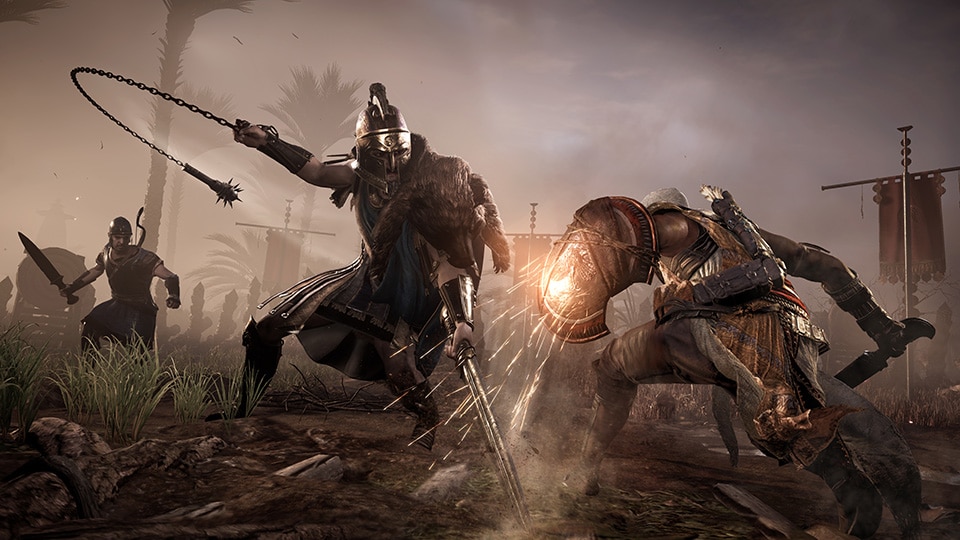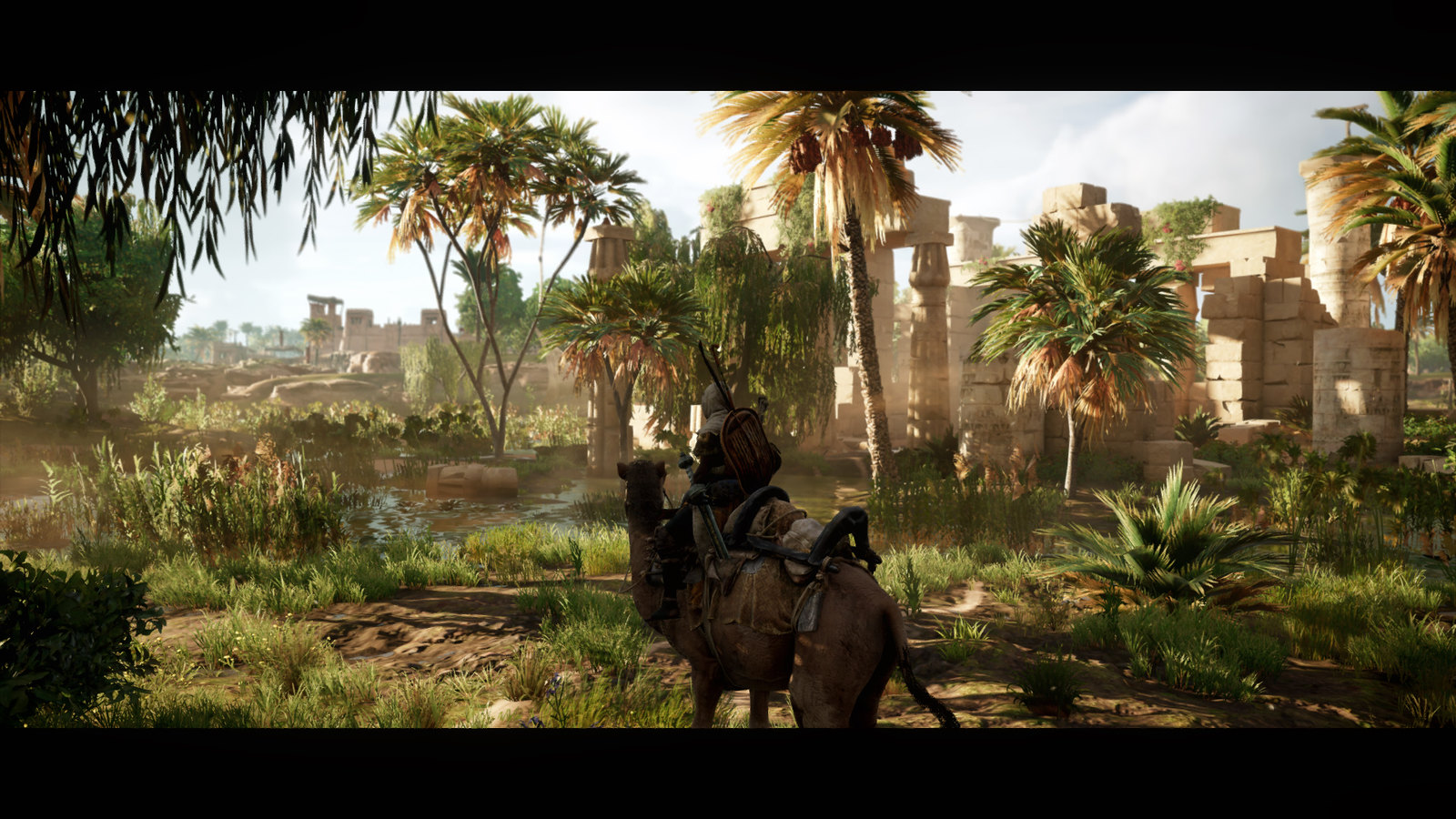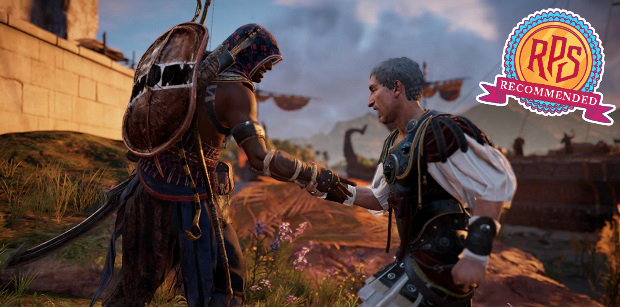


Then I ran up a fortress wall by accident while turning a corner, and a man with a tower shield kicked my head in. I took a moment to savour the thrill of actually learning something about a long-buried society, under my own steam and without any exposition, in a game that otherwise defaults to killing people, hiding from them or killing them while hiding from them. Of course - the pots weren't pots, they were moulds. Many hours later, while roaming the lush, darkened city of Memphis in search of a renegade priest, I found the answer: a man hunched over a coal fire, melting down pieces of iron which he then carefully poured into similar pots using a pair of tongs. How did the arrowheads get into the pots, and where did they come from? As I watched, he selected a pot and tapped it delicately with a hammer till it broke, revealing a shiny new-minted arrowhead, which he added to a pile on his left. In a functional sense the man was just background noise, his only role within the game to look spooked when randos decked in colourful weaponry fall off nearby buildings, but his air of concentration caught my attention.

Before I get to him, though, here's a quick paean to the intricacy of the game's historical recreation and in particular, the old man I saw seated in a corner with a collection of odd clay pots near the Library of Alexandria. As she says to Bayek at one point, “I must build a world that is larger than our griefs.”īayek himself is one of Ubisoft's more sympathetic protagonists, angry and hard-wearing yet not above the odd chariot race or round of hide-and-seek with the kids. You'll also spend a little time in the shoes of Bayek's Medjay wife, Aya, whose sense of the bigger picture occasionally feels like a segue into the original Assassin's Creed, and occasionally like Ubisoft passing judgement on its own recurrent structures and cliches (including its preference for leading men).

As per not-so-fine tradition there's a modern-day component, featuring everybody's favourite villainous VR company Abstergo and an absolute avalanche of backstory documents, but it takes up less than one hour in a 30 plus hour game. The bulk of Origins unfolds in North Africa, during the decline of Ptolemaic Egypt around 100 years BC, and is the tale of Bayek, a Medjay – think god-bothering policeman – on a quest to avenge his son's death at the hands of a powerful, scattered cult. This is exactly the kind of complex footwork that leads to messy accidents during parkour sequences, but somehow, the game keeps its balance throughout, though it's not quite the revival I was hoping for. A soft reboot four years in the making, Ubisoft Montreal's Assassin's Creed: Origins is one giant step back in time plus a smaller step forward in terms of world design, a stumble in terms of its levelling system, a sideways hop as regards combat and an exercise in jogging on the spot in terms of missions.


 0 kommentar(er)
0 kommentar(er)
